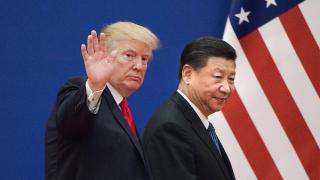Recent developments in US Asia policy have caused a good deal of uncertainty over the past 15 months. President Trump’s rejection of the Trans-Pacific Partnership and unilateral pursuit of trade tariffs, along with his scepticism of US alliances and the administration’s newly competitive approach to China herald potentially major—if sometimes incongruous—shifts in American policy. Although the White House’s “free and open Indo-Pacific” concept has been welcomed by regional allies and partners, much remains unclear about the policies and resources that will turn this vision into a strategy.
Amidst an increasingly challenging regional security environment, how should we make sense of US policy in Asia? What should Australia, which has recently released its own Indo-Pacific strategy, do to advance its security and economic interests during this period of flux? And how might Washington and Canberra strengthen their collective responses to the challenges of Chinese assertiveness, grey-zone competition, and instability on the Korean Peninsula?
This event is proudly co-sponsored by the Coral Bell School of Asia-Pacific Affairs and the Australian Institute of International Affairs.








